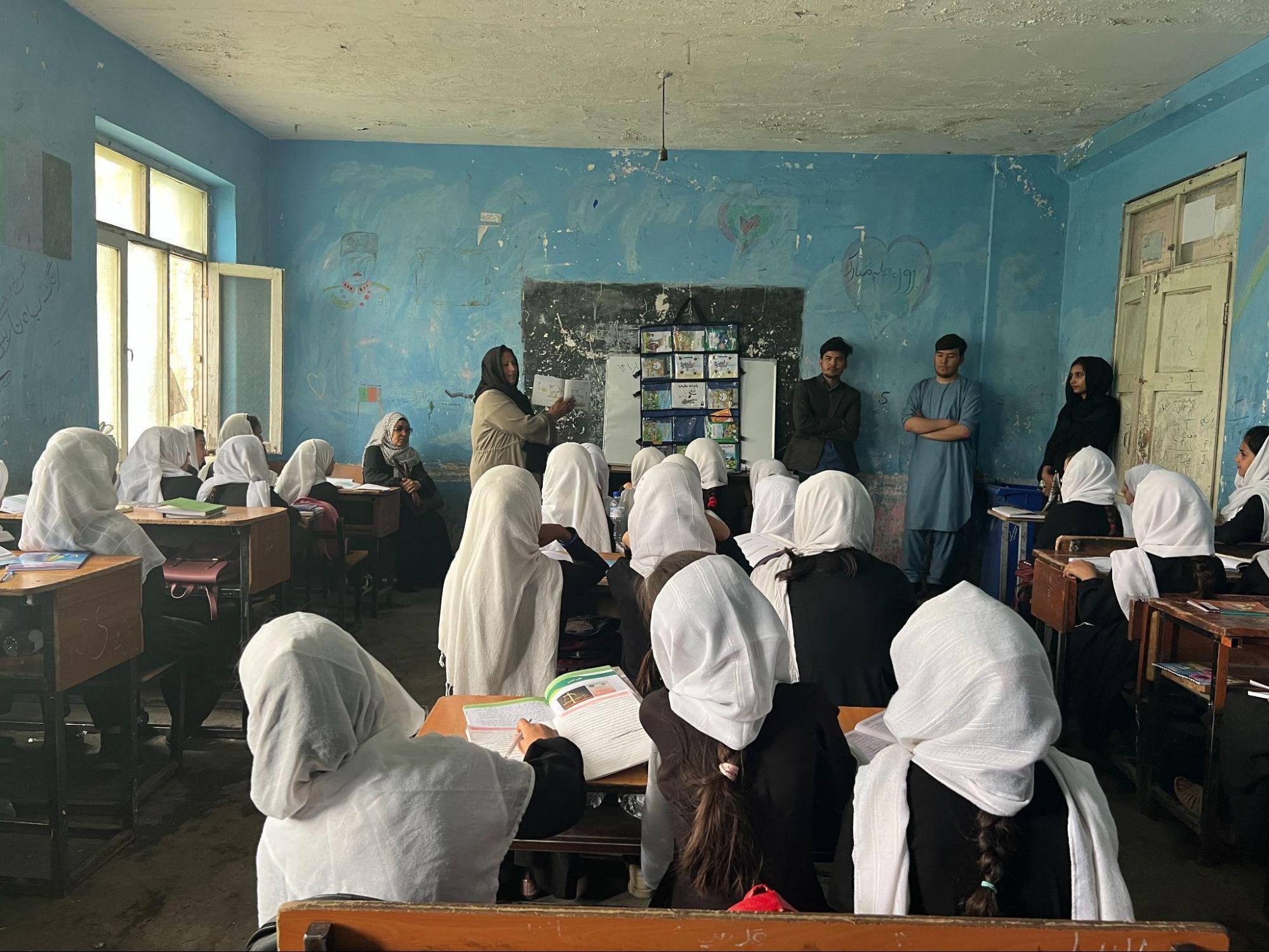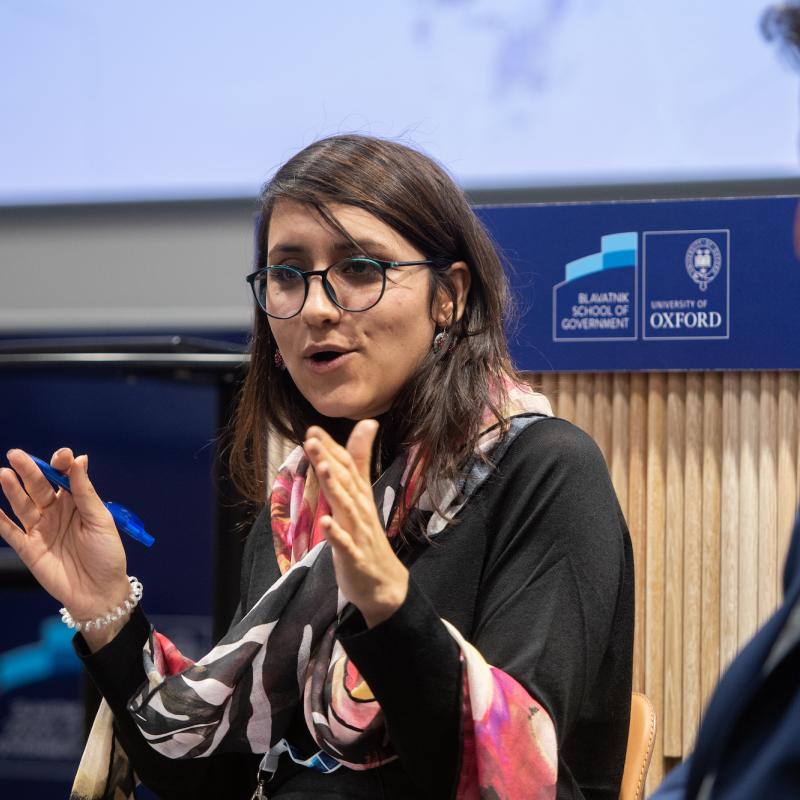On International Day of Education, let’s harness the power of collaboration to champion literacy for Afghanistan’s children
Freshta Karim (MPP 2016) reflects on how the Masters of Public Policy course prepared her for founding and running the charity Charmaghz, now the largest chain of mobile libraries in Afghanistan

Professor Karthik Ramanna, who was Director of the Masters of Public Policy (MPP) course when I enrolled in 2016, always said that the course was “a team sport”. This proved to be true in more ways than I could have predicted, as I became part of the Blavatnik School of Government family.
In 2018, a year after completing the MPP course, I founded Charmaghz which means ‘four brains’ in Farsi. This word felt like a perfect metaphor of collaboration - how we wanted to multiply children’s abilities and brain power but how we could only do so by putting our heads together and working as a team. We were full of energy, determined to bring reading, writing and basic mathematical skills to children, starting in the capital, Kabul.
The Taliban’s takeover of Afghanistan in August 2021 cast a storm of chaos, uncertainty and fear over the lives of our staff and the children we serve. It was the latest upheaval in my country’s long history—following decades of war as well as the COVID-19 pandemic. My MPP cohort and larger MPP community and faculty from across the world worked collaboratively to support my evacuation from Afghanistan. I will always be grateful for their tireless efforts to help me.
In the face of all this, our team has remained audaciously dedicated to building the literacy and numeracy skills of every child who visits our libraries. We remain registered in Afghanistan as a local non-profit and are committed to continue working.
Over half of our daily 3000 visitors are girls and our mobile libraries are staffed by trained librarians, 80% of whom are women. Alongside their work staffing the library, they reach out to local leaders and communities about the importance of children’s literacy and education. We work in some of Kabul’s most disadvantaged neighborhoods, where many children are facing extreme poverty and lack of quality education.
We now operate 30 mobile libraries, including five bus libraries, five van libraries and 20 library boxes, to welcome children into a safe, encouraging, and creative environment. While visiting our libraries, children are supported to build basic literacy and numeracy skills, but also to engage in art activities, have an open-mind, think critically, and to develop a love of reading. Across all of our activities, we use trauma-informed approaches that support children to process the distress and grief that nearly every Afghan has experienced.

Now more than ever, we believe Afghan children have a right to quality education as well as a peaceful future—both of which must begin with a strong foundation in literacy and numeracy. In the coming months and years, we are doubling down on our commitment to support Afghan children on their lifelong journey of literacy and remain hopeful of what we can achieve by putting our heads together and harnessing the power of community and collaboration, one page at a time.

